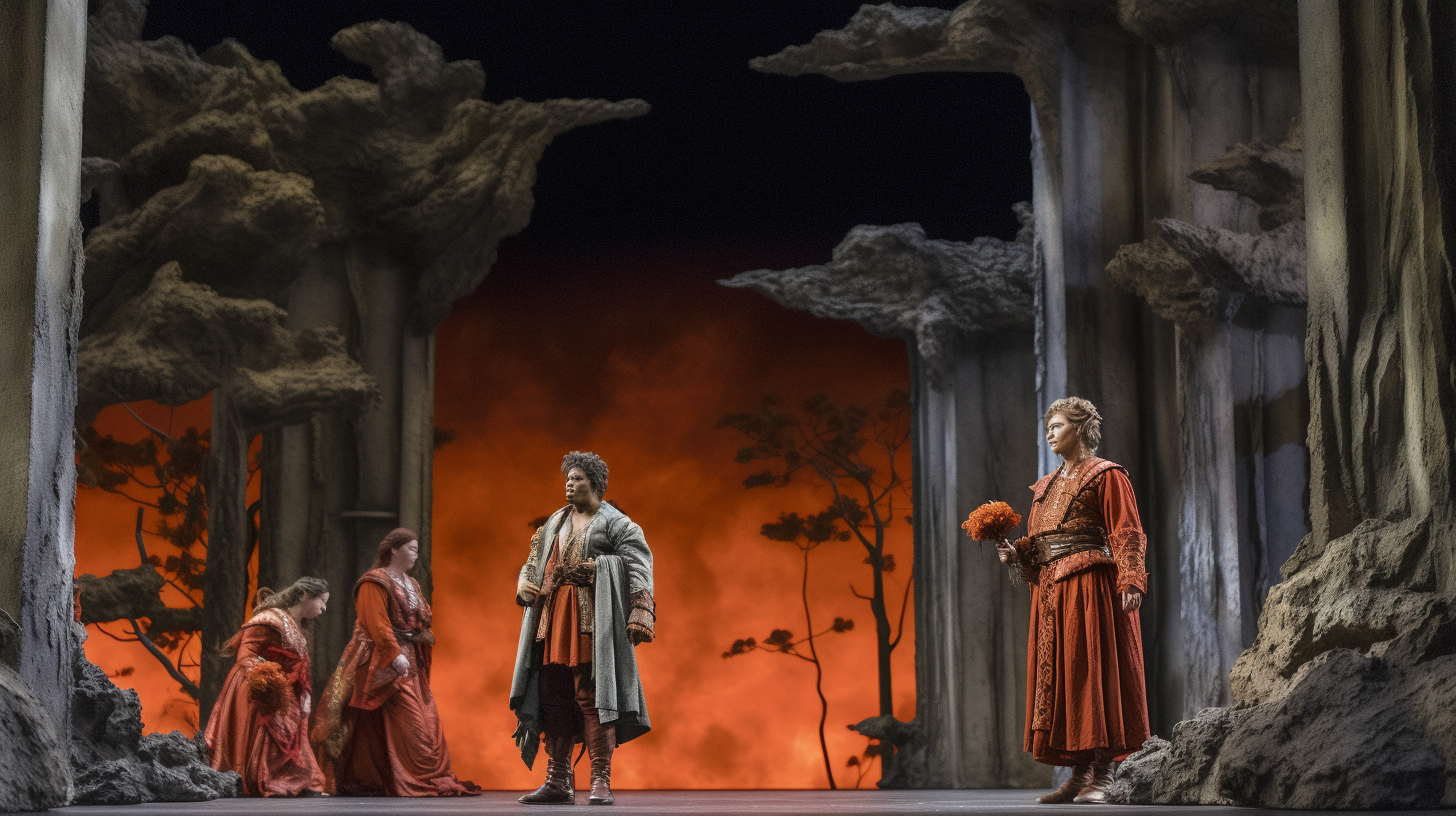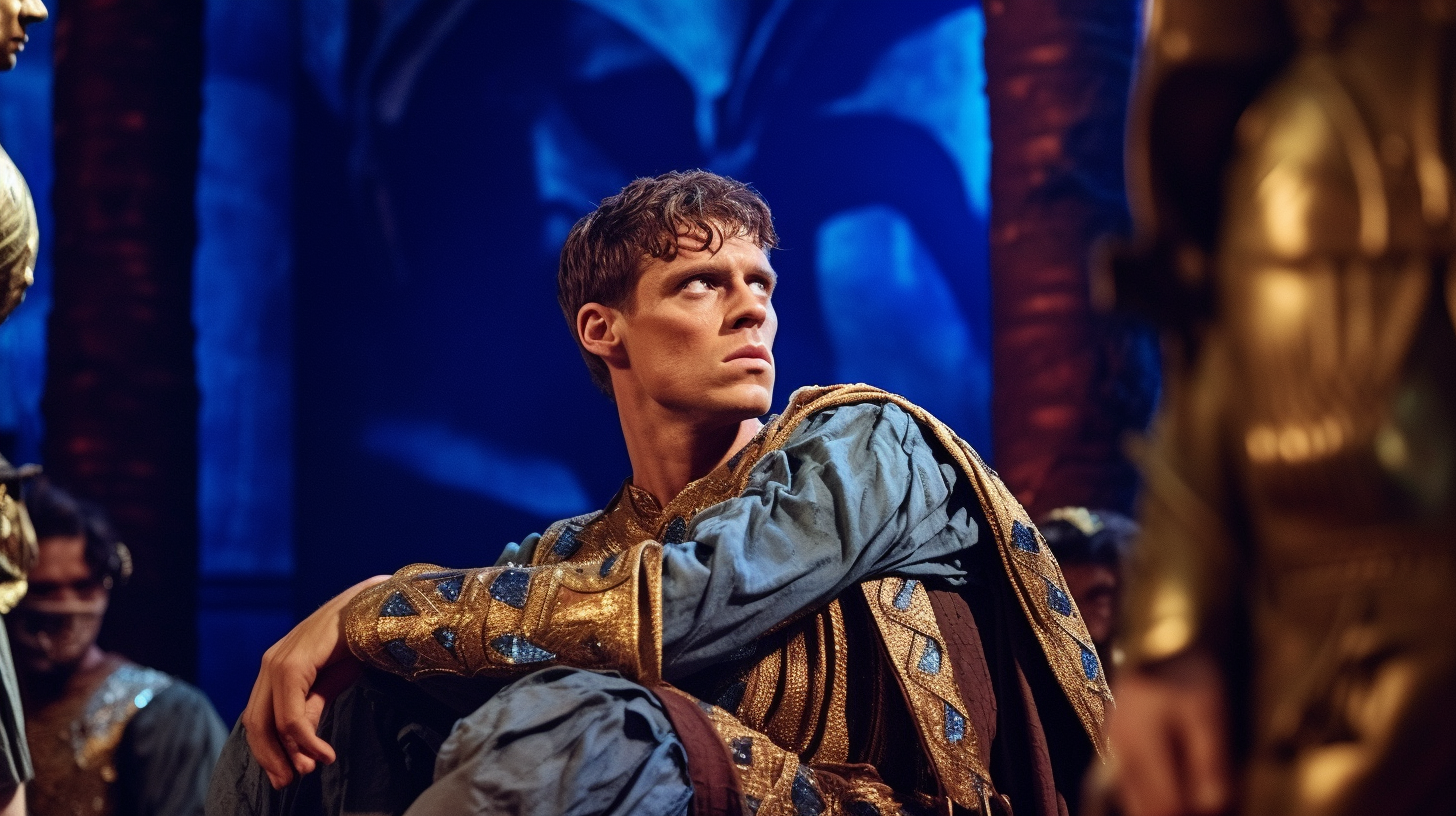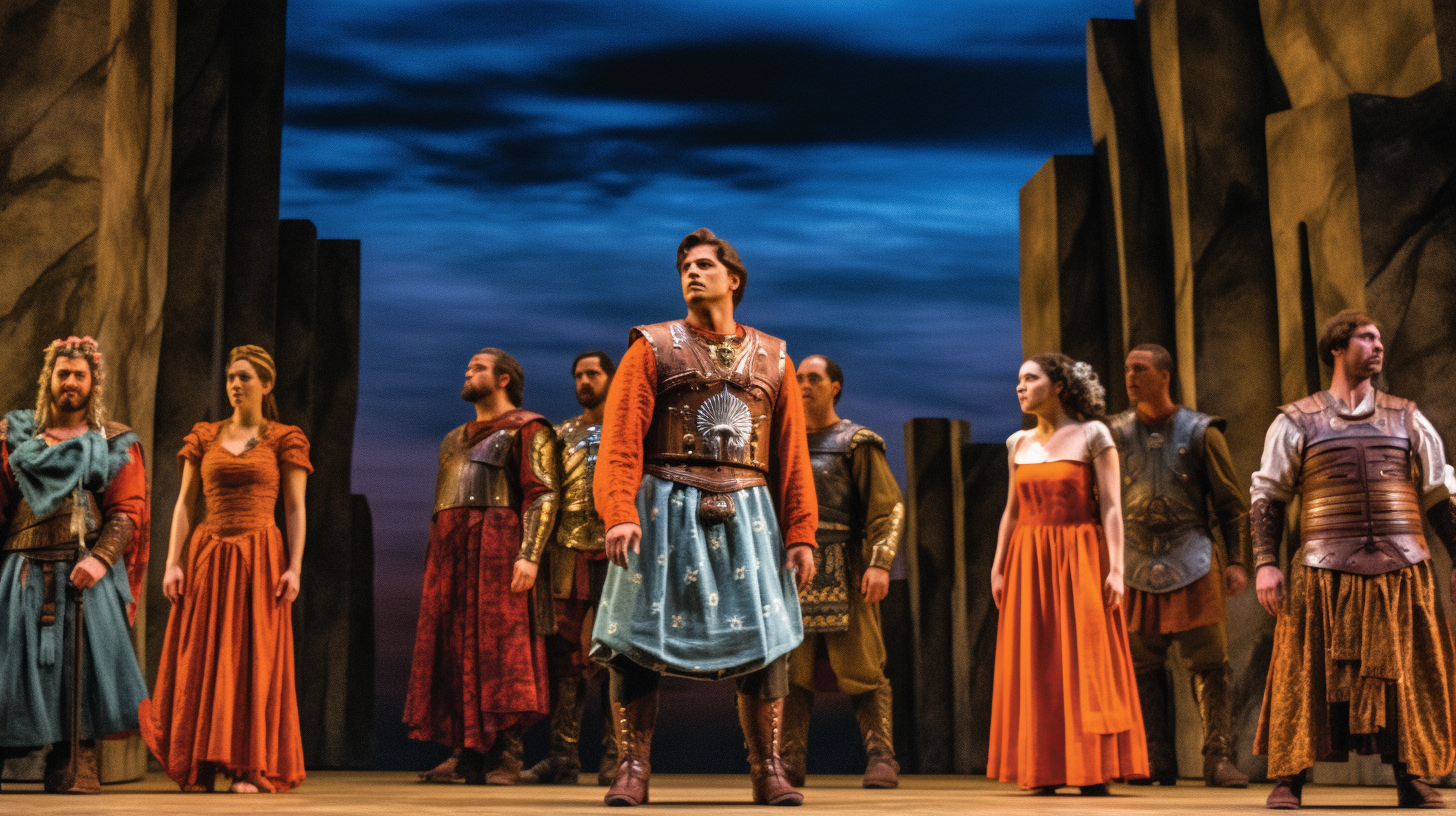The Quest for Identity in Virgil's 'The Aeneid'

The Quest for Identity in Virgil's The Aeneid
In the grand tapestry of Virgil's revered work, "The Aeneid," the quest for identity emerges as a central theme of profound significance. This ancient epic, steeped in the classical tradition, delves into the intricate complexities of human existence and the eternal pursuit of self-discovery. Through the trials and tribulations faced by the noble hero Aeneas, we are led on a philosophical odyssey, exploring the multifaceted nature of identity and its intrinsic connection to purpose and meaning.
Aeneas, a paragon of virtue and unwavering determination, assumes the role of the primary protagonist in this expansive narrative. Driven by the cataclysmic destruction of his cherished Troy, he sets forth on a treacherous voyage guided by the capricious dictates of fate. However, Aeneas' journey is not solely concerned with geographical exploration; it is an exploration of his true self, a quest to unravel the enigmatic threads of his identity amidst the tumultuous sea of uncertainty.

Significantly, Virgil diverges from the prevalent artistic conventions of his time, choosing not to employ the motif of weaving or the notion of realm-building in his masterpiece. As astute readers and thinkers, this conscious departure invites us to reevaluate the nature of identity formation and the diverse elements that contribute to its intricate tapestry.
The absence of weaving imagery compels us to navigate a symbolic realm of the psyche where Aeneas confronts fragments of his being and endeavours to synthesize them into a harmonious whole. Within this realm, he grapples with various trials and tribulations, both physical and spiritual, each catalyzing self-discovery. With every confrontation, he embarks on an inward voyage, exploring the depths of his soul and endeavouring to reconcile the conflicting forces that shape his identity.

Virgil's skillful storytelling transcends the simplistic notion of identity as a singular, static entity. Instead, he presents us with a multi-dimensional protagonist whose identity emerges through a dialectical interplay between internal and external influences. Through Aeneas' interactions with gods and mortals, he becomes entwined in a complex web of relationships. Within the crucible of these encounters, his sense of self evolves and takes shape.
As we delve deeper into the narrative, it becomes evident that the absence of a magnum opus, a grand artistic achievement, is not an accidental oversight but a deliberate choice by the poet. This omission prompts us to contemplate the fluidity and adaptability of Aeneas' identity. Rather than viewing identity as a meticulously woven tapestry, Virgil emphasizes its malleable nature, subject to the ebb and flow of Aeneas' arduous journey.
Without a fixed masterpiece, we are presented with the notion that identity is not an endpoint but an ongoing process of self-discovery and growth. Aeneas' quest is not limited to the confines of a singular life's work; it encompasses a lifetime of experiences, introspection, and evolution. Through the cumulative impact of these trials and tribulations, Aeneas unearths the essence of his being, gradually shaping his identity and purpose.
In our scholarly exploration of this ancient text, we encounter a plethora of profound philosophical implications. Virgil's departure from conventional artistic metaphors prompts us to question the traditional frameworks through which we comprehend and construct our identities. The absence of weaving and magnum opus invites us to embrace selfhood's multifaceted and dynamic nature, liberated from the constraints of fixed narratives or grand achievements.
Our take:
- Identity is a complex and multifaceted phenomenon shaped by internal and external influences.
- The absence of conventional metaphors challenges us to reconsider and
expand our understanding of identity formation.
- Identity is not a static masterpiece but an ongoing journey of self-discovery and growth.
- Exploring identity transcends individual achievements, encompassing the cumulative impact of experiences and introspection.
Speculating on the Good (καλός) related to this writing, we recognize the profound intellectual and philosophical discourse evoked by Virgil's masterful work. Through our engagement with the themes of identity and self-discovery, we can reflect upon our own lives and embark on our unique quests for self-realization. Virgil's narrative serves as a guiding light, illuminating the path toward a more profound understanding of the human condition and the inherent beauty of the ongoing process of self-actualization.
Plato Re-Imagined
This course offers 32 comprehensive lectures exploring most of Plato's dialogues. These lectures guide students toward a consilient understanding of the divine—a concept that harmonizes knowledge across disciplines and resonates with secular and religious leaders. As a bonus, Lecture #33 focuses on consilience, demonstrating how different fields of knowledge can converge to form a unified understanding.
